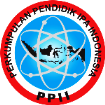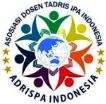Analysis of Science Textbooks from The Aspect of Scientific Argumentation: Comparing Several Books on The Topic of Heat
Abstract
This research aims to analyze the 2013 Curriculum Middle School Science textbooks published by the Ministry of Education and Culture and Erlangga publications used in Indonesia when compared with the Lower Secondary Science Matters textbooks used in science learning in Singapore in terms of the aspect of scientific argumentation on the topic of heat. This research is qualitative research analyzed using the constant comparison method. The data analysis process was carried out through five stages, namely reduction, organizing, categorization, synthesis and developing working hypotheses. After the organizing stage, a data validity test is carried out using credibility, transferability, anteriority and confirmability techniques. The results of the research found that there were differences in the scientific argumentation aspects of the three textbooks, namely the majority of the Lower Secondary Science Matters textbooks were at level 3, while the majority in the 2013 Curriculum Middle School Science textbooks published by the Ministry of Education and Culture and those published by Erlangga were at level 2. In the Curriculum Science textbooks The 2013 edition of the Ministry of Education and Culture from Indonesia provides more statements accompanied by supporting sentences to prove the truth in the form of data, experiments, observations in daily life, and pictures that illustrate a situation, whereas the Lower Secondary Science Matters textbook provides more statements ( claim) which is accompanied by supporting sentences to prove its truth in the form of data, experiments, observations in daily life, and pictures that illustrate a situation (data), then reinforced by sentences that connect them (warrant).
Keywords: scientific argumentation, Toulmin's Argument Pattern (TAP), science textbook.
Full Text:
PDFReferences
Abdul, R. D. (2006). Analisis Wacana Sebuah Kajian Bahasa dalam Pemakaian. Malang: Bayu Media Publishing.
Approved textbook list | MOE. (2021). A Singapore Government Agency Website. https://www.moe.gov.sg/education-in-sg/approved-textbook-list
Bintang Sitepu. (2012). Penulisan Buku Teks Pelajaran. PT.Remaja Rosdakarya. Practices Through Argument-Based Inquiry.
Bricker, L. A., & Bell, P. (2008). Conceptualizations of argumentation from science studies and the learning sciences and their implications for the practices of science education. Science Education, 92(3), 473–498. https://doi.org/https://doi.org/10.1002/sce.20278
Chen, Y.-C., Hand, B., & Park, S. (2016). Examining elementary students’ development of oral and written argumentation practices through argument-based inquiry. Science & Education, 25(3), 277–320. https://doi.org/https://doi.org/10.1007/s11191-016-9811-0
Edward S. Inch, Barbara Warnick, and D. E. (2006). Critical Thinking and Communication: The Use of Reason in Argument,(Boston: Pearson Education, Inc) (p. 9).
Erduran, S. (2004). TAPping into Argumentation : Developments in the Application of Toulmin ’ s Argument Pattern for Studying Science Discourse. 915–933. https://doi.org/10.1002/sce.20012
Fitriani, H. (2019). Pengembangan Buku Teks Pelajaran IPA SMP/MTs Model Integrated dengan Tema Biomagnetik pada Makhluk Hidup. Universitas Negeri Padang. http://repository.unp.ac.id/id/eprint/25216
Gorys, K. (2007). Argumentasi dan Narasi. Jakarta: PT. Gramedia Pustaka Utama.
Hakim, R. (2019). Pengembangan buku teks Ilmu Pengetahuan Alam (IPA) yang terintegrasi dengan peradaban Islam untuk peningkatan sikap ilmiah dan pengetahuan IPA: Penelitian pada SMP/MTs di Kabupaten Sumedang Jawa Barat. UIN Sunan Gunung Djati Bandung.
Henry Guntur Tarigan, D. T. ; penyunting. (2009). Telaah buku teks bahasa Indonesia (Tim Penyunting Angkasa (Ed.)). Angkasa.
Lexy J. Moleong. (2007). Metodologi Penelitian Kualitatif. Edisi Revisi (23rd ed.). PT.Remaja Rosdakarya.
Marhamah, O. S., Nurlaelah, I., & Setiawati, I. (2017). Penerapan model argument-driven inquiry (ADI) dalam meningkatkan kemampuan berargumentasi siswa pada konsep pencemaran lingkungan di kelas X SMA Negeri 1 Ciawigebang. Jurnal Pendidikan Dan Biologi, 9(2), 39–45. https://doi.org/10.25134/quagga.v9i02.747.
OECD. (2019). PISA 2018 Assessment and Analytical Framework. In OECD Publishing. https://doi.org/10.1787/b25efab8-en
Probosari, R. M., Ramli, M., Harlita, H., Indrowati, M., & Sajidan, S. (2016). Profil Keterampilan Argumentasi Ilmiah Mahasiswa Pendidikan Biologi FKIP UNS pada Mata Kuliah Anatomi Tumbuhan. Bioedukasi: Jurnal Pendidikan Biologi, 8(2). https://doi.org/10.20961/bioedukasi-uns.v9i1.3880
Rusilowati, A., Nugroho, S. E., & Susilowati, S. M. E. (2016). Development of science textbook based on scientific literacy for secondary school. Jurnal Pendidikan Fisika, 12(2), 98–105. https://doi.org/10.15294/jpfi.v12i2.4252
Sampson, V., Grooms, J., & Walker, J. P. (2011). Argument‐Driven Inquiry as a way to help students learn how to participate in scientific argumentation and craft written arguments: An exploratory study. Science Education, 95(2), 217–257. https://doi.org/https://doi.org/10.1002/sce.20421
Sari, M. I. P., & Chandra, E. (2019). Analisis Kualitas Wacana Argumentasi Buku Teks Biologi SMA Kelas XI Semester 2 pada Materi Sistem Ekskresi. Jurnal Ilmu Alam Indonesia, 2(2).
Simon, S., Erduran, S., & Osborne, J. (2006). Learning to teach argumentation: Research and development in the science classroom. International Journal of Science Education, 28(2–3), 235–260. https://doi.org/https://doi.org/10.1080/09500690500336957
Sumarni, S., Aryanti, D., & Siswanto, S. (2020). Pandangan Guru IPA Tentang Nature of Science (NOS) dan Argumentasi Ilmiah Serta Kendala dalam Pengajarannya. Indonesian Journal of Natural Science Education, 3(2), 380–386. https://doi.org/https://doi.org/10.31002/nse.v3i2.1201
Toulmin, S. E. (2003). The uses of argument. Cambridge university press.
Von Aufschnaiter, C., Erduran, S., Osborne, J., & Simon, S. (2008). Arguing to learn and learning to argue: Case studies of how students’ argumentation relates to their scientific knowledge. Journal of Research in Science Teaching: The Official Journal of the National Association for Research in Science Teaching, 45(1), 101–131. https://doi.org/https://doi.org/10.1002/tea.20213
Wahyuni, S., Taslim, R. K., & Bachtiar, R. W. (2017). Pengembangan Buku Teks Pelajaran IPA Terintegrasi Mitigasi Bencana Pada Pokok Bahasan Getaran Dan Gelombang. FKIP E-PROCEEDING, 2(1), 7.
Wahyuningsih, N., Redhana, I. W., & Swasta, I. B. J. (2020). Analisis Buku Pelajaran Kimia SMA Kelas X Semester II Kurikulum 2013 Ditinjau dari Pola Argumentasi Toulmin. Jurnal Matematika, Sains, Dan Pembelajarannya, 14(1), 192–202. https://doi.org/http://dx.doi.org/10.23887/wms.v14i1.21756
DOI: http://dx.doi.org/10.24014/jnsi.v7i1.9864
Refbacks
- There are currently no refbacks.

Journal of Natural Science and Integration
E-ISSN: 2620-5092 P-ISSN: 2620-4967
Published By:
Department of Science Education, Faculty of Education and Teacher Training,
State Islamic University of Sultan Syarif Kasim Riau, Indonesia
Mailing Address:
Jl. H.R Soebrantas Km. 15 No. 155
Kelurahan Simpang Baru
Kecamatan Tuah Madani, Pekanbaru, Riau, Indonesia
Email: jnsi.tadrisipa@uin-suska.ac.id
Indexed By:
Journal of Natural Science and Integration is licensed under a Creative Commons Attribution 4.0 International License.


_-_Copyy2.png)






.jpg)
.png)
.jpg)
.jpg)




